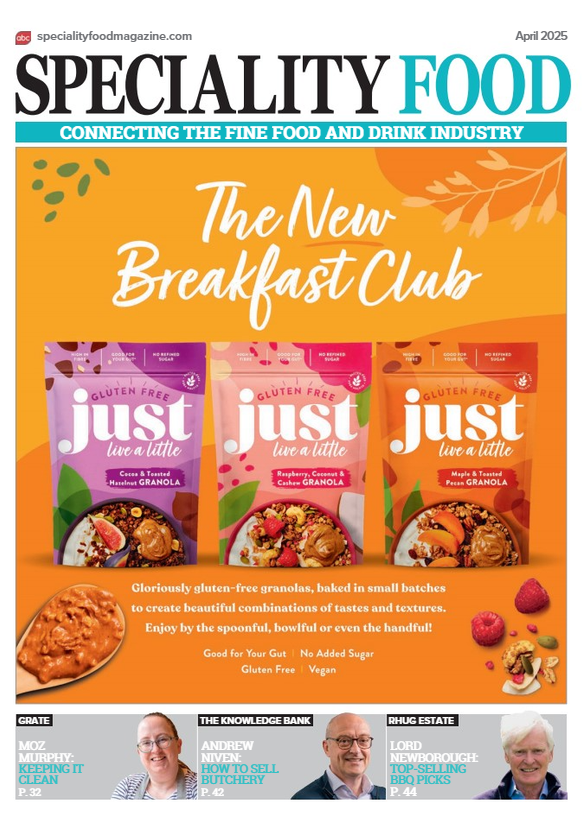“Best of British”

- How one cheese shop supported locals in lockdown
- Rory Mellis, IJ Mellis: “Local businesses have a chance to flourish”
- Why we should be proud of the cheese industry’s response to Covid
- The joy of cheese grading
- “Keeping the faith”
The quality of British cheese is fast gaining international recognition, with exports reaching an all-time high in 2014 as we continue to strengthen our reputation globally as quality cheesemakers.
The quality of British cheese is fast gaining international recognition, with exports reaching an all-time high in 2014 as we continue to strengthen our reputation globally as quality cheesemakers.
Within the UK cheese market, we’ve seen the growth of the major brands, which has been dominated by Cheddar, and has been key in driving the market forward, particularly through value.
Development of different formats of cheese, such as slices and convenient portion sizes, has made cheese more relevant and accessible to today’s consumers. Usage has become a lot more important and progress has been made in educating consumers to understand how and when they can use the product.
There’s also been a great deal more emphasis placed on artisan cheeses with unique recipes and places of origin, too. There’s certainly more diversity and recognition of provenance in the UK market than we’ve ever had before.
We’ve become more educated as a population in the last five years, and the influence of imported cheese has caused the UK consumer to become more discerning and understanding of where their cheeses come from and the quality they expect.
In turn, if you look at emerging export markets, the appetite for British cheese is very strong – exports account for 14% of our overall sales, and our range of Yorkshire Wensleydale cheese is exported worldwide from Europe, the US and the Far East. I visited Dubai recently and British cheeses feature much more in the international mix than they did a few years ago.
British cheese is firmly establishing its place within the international offering, sitting on shelves across the world alongside classic French cheeses like Brie, Camembert and Saint Agur, Italian Parmesan and Gorgonzola and Spanish Manchego. Historically, this might have been predominantly Cheddars and Stilton, but now we’re seeing increased demand for territorial cheeses and, a key market for Yorkshire Wensleydale and blended cheeses such as Yorkshire Wensleydale & Cranberries.
Provenance and authenticity are incredibly important for brands in ensuring British cheese appeals to international markets and stands out in a competitive marketplace, but ultimately for a cheese to be successful in an export market, it’s got to be good.
With a global appetite for discovering new tastes and exploring new flavours, the focus for cheesemakers is not only about authenticity, but about flavour. It’s about appealing to markets that want to buy cheese from Britain whilst ensuring that we’re delivering a taste and flavour that consumers within that market are looking for and enjoy.
Take regional cheeses for example. Some of them have had a hard time breaking into international markets and others have performed reasonably well, particularly those which have expanded their categories. By broadening our range of Yorkshire Wensleydale to include speciality cheeses such as Kit Calvert and blended cheeses such as Yorkshire Wensleydale & Cranberries, which is a particularly popular product for us in international markets, we’ve been able to open up the brand to bigger markets.
There’s also been an increase in the types of soft and Continental-style cheeses coming out of Britain, all of which put the UK on the international map in terms of producing quality cheese – and rival our French counterparts, showing that it’s not just the French that can produce a good soft cheese!
This year has seen the launch of a Great British Food Unit by DEFRA and UKTI in a bid to promote British food abroad and back British food at home. Since 2010, the number of protected foods in the UK has increased from 40 to 64, 17 of which are cheeses. The Great British Food Unit has ambitions to grow the number of Protected Food Names from 64 to 200 and open up further export opportunities.
The campaign is gaining popularity and we’re keen to support DEFRA’s commitment to growing exports through food and their ambitions to make 2016 the ‘Year of British Food’. The Wensleydale Creamery has already benefited from the support of people like UKTI and DEFRA in terms of trying to drive export sales of cheese. Support from HRH The Prince of Wales, who recently visited The Wensleydale Creamery, can only widen the appeal of British cheese abroad.
Gaining European Protected Food Name Status in the form of Protected Geographical Indication (PGI) status for our Yorkshire Wensleydale is one element that is helping with that. This international mark guarantees the quality and authenticity of our Yorkshire Wensleydale and differentiates it from Wensleydale cheese produced in other counties across the UK. This has been advantageous when selling into international markets and gives us a platform for telling the story of our provenance and authenticity globally.
As well as protecting quality and enhancing the overall reputation of British cheeses overseas, protected status comes with wider socio-economic benefits and supports British farmers to add value to their milk. We all know that it’s been a difficult time for the dairy market and I believe we have a responsibility to buy and consume British.
There’s much optimism for UK cheesemakers – we’re producing some fantastic cheeses and the quality, of both products and consumer base, is rising all the time. As an industry, we’re driving forward change and development in a challenging cheese market and there’s endless innovation around recipes, cultures and styles of cheese. At this rate, Britain certainly has the potential to rival its neighbours as the Capital of Great Cheese.
more from Cheese Talk
-
“Don’t sway to populists”
25 August 2016 Cheese TalkWith consumer demands continually fluctuating and markets changing on a yearly basis, it’s almost impossible to predict what the new craze or sudden ‘loser’ will be. -
“Making a spectacle of yourself”
12 July 2016 Cheese TalkUntil a few weeks ago I was feeling rather smug about my moved to New Zealand, basking in a four month-long near-drought with autumn temperatures rarely falling below 20ºC -
“Cheese magic – it’s in our culture”
17 May 2016 Cheese TalkWe all know that cheese is magic… really. Some milk, some rennet, some starter culture, some salt and maybe sometimes some controlled mould, and hey presto you have thousands of different cheeses

